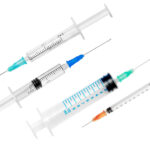The pandemic has caused the largest continued decline in global immunisation rates in 30 years and we are not immune, says an expert.
Australia is facing a “big challenge” to rebuild immunisation rates that have taken a massive hit from the covid pandemic, says infectious diseases expert and deputy chair on the Australian Technical Advisory Group for Immunisation, Professor Michelle Giles.
Professor Giles was talking at the recent Communicable Diseases and Immunisation Conference in Perth.
“The pandemic has caused the largest continued decline in global immunisation rates in 30 years,” she said.
“For some people in the audience, that’s your whole working career. You’ve never seen this before. We’ve never seen such a decline in immunisation rates. And that’s our starting point for the future. So it’s going to be a big challenge.”
Australia’s problem would be compounded by the vaccination rates in other countries in the region.
“It’s really important that we don’t forget about the millions of children who are under or unvaccinated,” she said.
“There are now 48 million cumulative zero dose children [globally] and we can’t just sit in Australia and think that won’t impact on us. It does.”
Professor Giles said Australia did very well maintaining good vaccination coverage during the pandemic, but there remained pockets of the country that were under-vaccinated, “and we shouldn’t turn a blind eye to that”.
She also referenced the Vaccine Confidence Program, which maps and monitors public confidence in vaccination on a global scale.
In 2015, 93% of Australians agreed that vaccines were important for children. By 2022 that number had fallen to 86%. In 2015, 90% or Australians agreed that vaccines were safe – in 2022 that number fell to 85%. In 2015, 92% of Australians agreed vaccines were effective – in 2022 that number fell to 88%.
“It’s not dissimilar to many other high-income settings. But again, I think we need to realise this, because the path forward isn’t going to be easy when we’re seeing a decline in those sorts of sentiments in our country,” Professor Giles told the delegates.
Professor Michelle Giles is an infectious diseases physician specialising in maternal immunisation and infection. In addition to her role with ATAGI, her academic appointments are with the Department of Obstetrics and Gynaecology, Monash University and Department of Infectious Diseases, University of Melbourne.
She has been a member of ATAGI since 2016 and deputy chair since 2021.
She also used the conference to offer some rare insight into the work of ATAGI, particularly during the covid pandemic.
She said the group had flown under the radar of the wider community pre-covid but had found an incredible spotlight put upon it as the group worked to provide advice to the minister for health and PBAC in a climate of intense debate about covid vaccination safety and supply.
“We had to think about priority populations, we had to think about efficacy, we had to think about the communication even though we weren’t ultimately responsible for that strategy,” she said.
“We had to think about emerging evidence, the absence of evidence, changing evidence, and this could have happened all in one week. As you all know, we also had to deal with anti-vaccination, anger, mandates, trolling, and I hate to say it, also death threats based on the advice.
“And for many members on ATAGI, this is not an area that we were familiar with prior to joining ATAGI.”
Professor Giles said the ATAGI members understood the impact of their recommendations and spent a considerable amount of time considering all the evidence. She said she tried to remain calm through the intense moments, but it was a challenge.
“With all of this going on, I have to say that my head felt like it was going to explode trying to balance all these,” she said.
On a positive note, Professor Giles revealed there were “lots of new vaccines on the horizon”.
“This is an estimate that 14 new vaccines potentially come into the market by 2035,” she said.
“As an adult ID [infectious diseases] physician, I’m super excited about the growth in the potential adult vaccinations that may be certainly coming to a targeted way in the future.”
More than 600 Australian and international health experts gathered in Perth for the Communicable Diseases and Immunisation Conference, hosted by the Public Health Association of Australia.
The conference discussed topics ranging from progress towards the establishment of Australia’s Centre for Disease Control, the latest evidence on emerging and new infectious disease threats in Australia, the latest vaccine technology, and how Australia can support neighbouring countries with their health needs.
A special address by senior World Health Organization official Dr Kate O’Brien also explored the challenges and future opportunities for immunisation and vaccination around the world.





